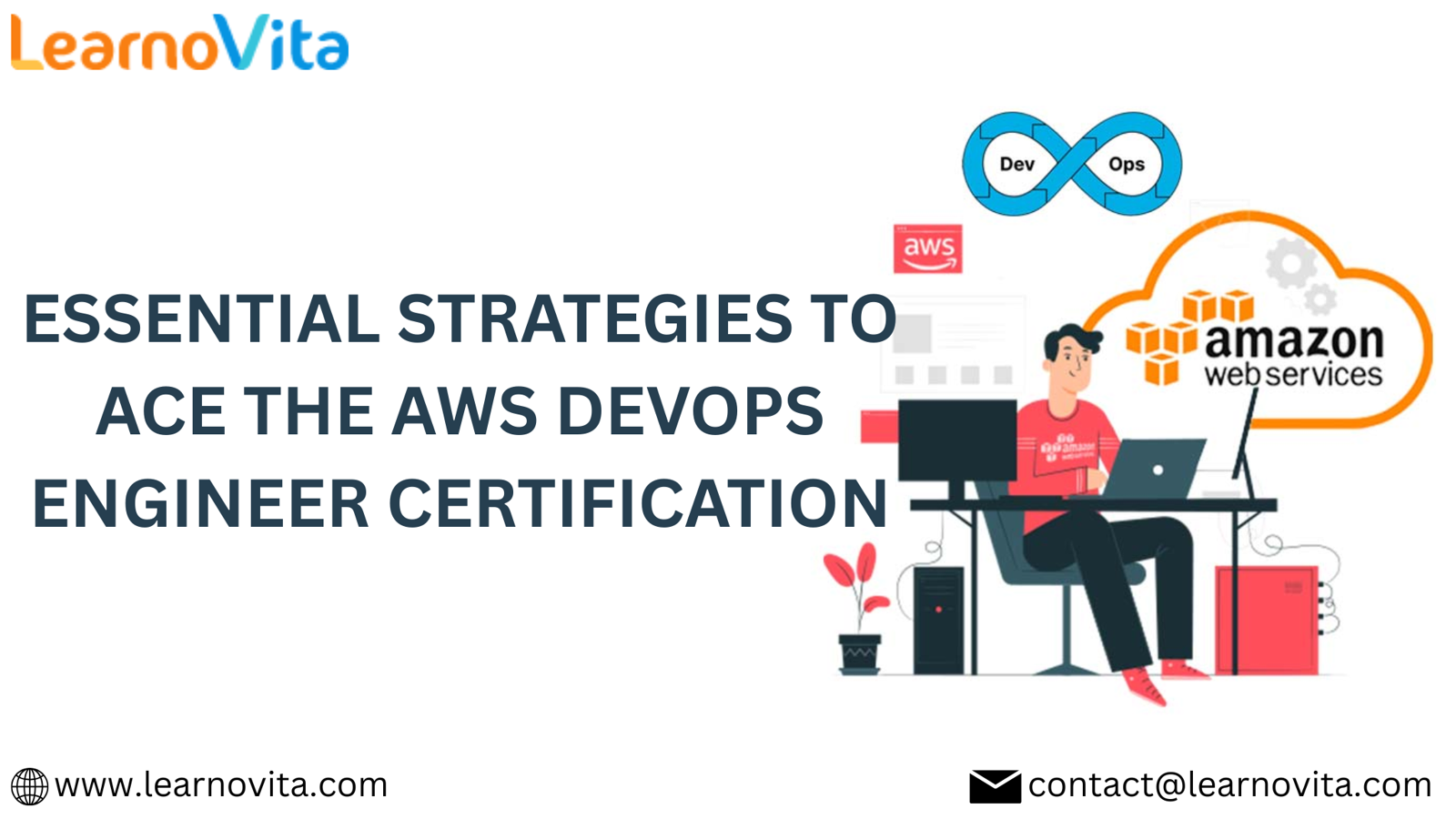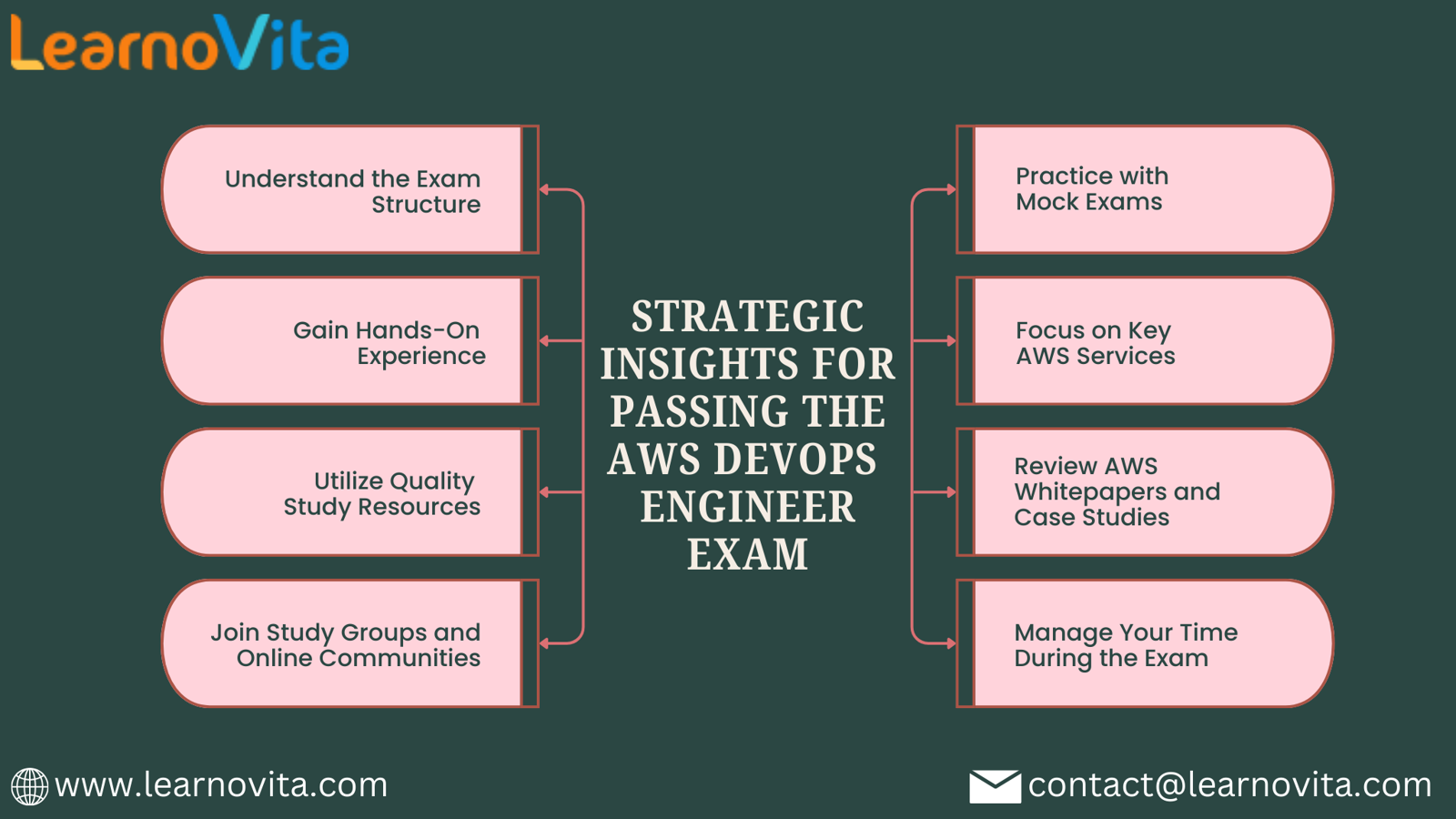How to Effectively Prepare for the AWS DevOps Engineer - Professional Exam
- Get link
- X
- Other Apps

1. Understand the Exam Format and Objectives
Start by familiarizing yourself with the exam structure. The AWS DevOps Engineer - Professional exam consists of multiple-choice and multiple-response questions that assess your knowledge across various domains, including:
- Continuous Delivery and Process Automation
- Monitoring, Logging, and Automation
- Security, Governance, and Compliance
- Incident and Event Response
Review the official AWS exam guide to understand the weight of each domain. This will help you prioritize your study efforts accordingly.
2. Gain Hands-On Experience
Theory is essential, but hands-on experience is crucial for mastering AWS services. Create an AWS account and start experimenting with key services relevant to DevOps, such as:
- AWS CodePipeline for automating release processes.
- AWS CloudFormation for infrastructure as code.
- Amazon CloudWatch for monitoring and logging.
- AWS Lambda for serverless computing.
Working on real-world projects will not only reinforce your understanding but also prepare you for the practical application of concepts.
3. Utilize Diverse Study Materials
A well-rounded study plan incorporates various resources. Consider the following materials to enhance your preparation:
- Official AWS Training: Enroll in AWS’s training courses specifically designed for the DevOps Engineer certification.
- Books: Read comprehensive study guides like "AWS Certified DevOps Engineer - Professional Study Guide" for in-depth knowledge.
- Online Courses: Take advantage of platforms like A Cloud Guru, Udemy, or Coursera that offer tailored courses covering the exam syllabus.
Using a mix of resources will provide different perspectives and reinforce your understanding of complex topics.
4. Join Study Groups and Online Communities
Connecting with others preparing for the exam can provide valuable insights and support. Join study groups or online forums where you can:
- Share resources and study tips.
- Discuss difficult topics and clarify doubts.
- Practice mock exams together.

5. Take Practice Exams
Mock exams are a crucial part of your preparation. They help you familiarize yourself with the exam format and timing, as well as identify areas that require further focus. Look for reputable sources that offer full-length practice exams, and analyze your results to pinpoint weaknesses.
6. Focus on Key AWS Services
Ensure you have a solid grasp of essential AWS services relevant to DevOps. Key services to focus on include:
- AWS Elastic Beanstalk: For deploying applications.
- AWS IAM: For managing identities and access.
- Amazon EC2: For scalable compute resources.
- AWS Systems Manager: For operational management.
Understanding how these services interconnect will be invaluable for scenario-based questions.
7. Review AWS Whitepapers and Best Practices
AWS publishes numerous whitepapers and best practice documents that can significantly inform your preparation. Key documents to review include:
- AWS Well-Architected Framework
- Security Best Practices
- DevOps at AWS
These resources provide insights into best practices and architectural patterns that are crucial for the exam.
8. Master Time Management on Exam Day
Effective time management is crucial to successfully completing the exam. Here are some strategies to consider:
- Read Each Question Carefully: Ensure you understand what is being asked before selecting an answer.
- Flag Uncertain Questions: If you’re unsure, mark the question for review and return to it later if time allows.
- Pace Yourself: Keep an eye on the clock to ensure you can address all questions without feeling rushed.
Conclusion
Preparing for the AWS DevOps Engineer - Professional exam requires a comprehensive, strategic approach that combines knowledge, hands-on experience, and effective study habits. By understanding the exam format, gaining practical experience, utilizing diverse study materials, and managing your time wisely, you’ll be well-equipped to succeed. Best of luck as you embark on your journey to becoming an AWS Certified DevOps Engineer!
- Get link
- X
- Other Apps

Comments
Post a Comment